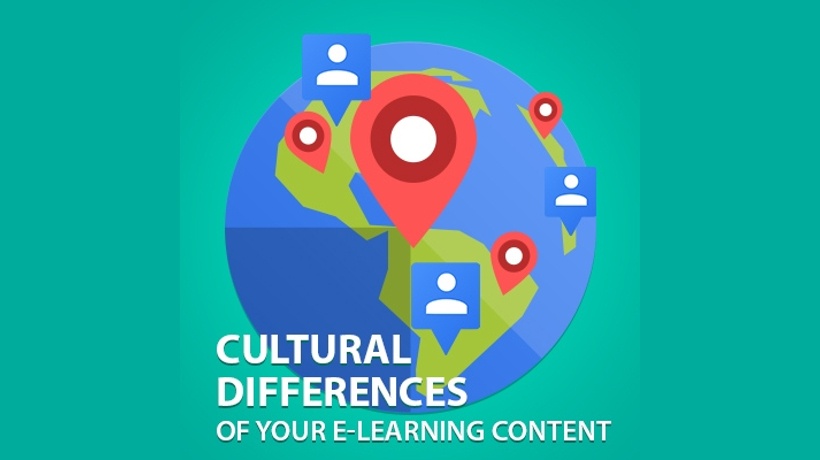Is A Global Perspective A Requirement For Coaches?
The field of coaching is evolving rapidly to accommodate the global nature of business and communication. With the rise of technology, coaches now have the ability to work with clients from all over the globe, creating new opportunities for personal and professional growth. However, with this comes the challenge of incorporating a global perspective in coaching relationships, and recognizing and respecting cultural differences in interventions. This is where strategic eLearning can truly make a difference. eLearning, or online learning, has become increasingly popular and relevant in today's digital age. It offers coaches the flexibility to reach a wider audience and cater to individual learning needs and preferences. With the right approach, eLearning can be a powerful tool for coaches to incorporate a global perspective in their practice.
The Benefits Of Strategic eLearning For Global Coaches
1. Inclusive Learning Environment
One of the key ways in which eLearning can aid in promoting a global perspective in coaching is by creating a diverse and inclusive learning environment. Through online platforms, coaches can reach individuals from different cultures, backgrounds, and countries, which can help to broaden their understanding of cultural differences. This exposure to diverse perspectives can also help coaches recognize their own cultural biases and challenge them, leading to a more inclusive and respectful coaching practice.
2. Bridging Gaps
Strategic eLearning is a powerful tool that can help coaches bridge the gap between different cultures and promote a deeper understanding of cultural diversity in coaching. By leveraging online learning methods, coaches can prepare themselves for working with clients from different backgrounds, and develop the necessary skills to navigate through cultural differences.
3. Flexibility And Accessibility
One of the key benefits of strategic eLearning is its ability to provide coaches with a flexible and accessible platform for learning. With the convenience of online courses, coaches no longer have to travel to attend workshops or conferences to gain a global perspective. They can access a wealth of resources, ranging from webinars to interactive virtual training sessions, from the comfort of their own home or office. This opens up doors for coaches to learn from experienced professionals from around the world, and expand their knowledge by interacting with a diverse community of coaches.
4. Cultural Awareness
Strategic eLearning can help coaches to gain a deeper understanding of cultural differences. The online courses are often designed by experts in the field, who have a wealth of knowledge and experience in cross-cultural coaching. These courses cover a wide range of topics, including cultural sensitivity, communication styles, and ethical considerations, providing coaches with practical strategies to effectively navigate through cultural differences in coaching relationships. By gaining a better understanding of different cultural values and norms, coaches can create a safe and inclusive environment for their clients, promoting mutual respect and understanding.
5. International Clientele
In addition to improving their own skills and understanding, strategic eLearning can also help coaches to better serve their international clients. With the help of eLearning, coaches can develop customized intervention strategies that are sensitive to the cultural backgrounds of their clients. This can help to enhance coaches' effectiveness in their practice, as they can tailor their coaching techniques to align with their clients' cultural expectations and preferences.
6. Staying Up-To-Date
Furthermore, strategic eLearning can help coaches to stay up-to-date with the constantly evolving global business landscape. As the business world becomes more interconnected, the demand for cross-cultural coaching is increasing. In order to remain competitive and relevant, coaches need to continuously update their knowledge and skills. eLearning offers coaches the opportunity to stay updated with the latest trends and practices in cross-cultural coaching, ensuring that they are able to provide the best and most relevant services to their clients.
Why Coaches Should Develop A Global Perspective
One of the most crucial aspects of incorporating a global perspective in coaching is to understand and respect cultural differences. This involves being aware of one's own cultural biases and beliefs, as well as understanding those of the client. eLearning can facilitate this process by providing coaches with the tools and resources to learn about different cultures and how they may impact coaching relations.
Through eLearning platforms, coaches can access a wealth of information on various cultural dimensions and their implications for coaching. They can learn about differences in communication styles, attitudes towards authority, decision-making processes, and other important factors that may impact the coaching relationship. This knowledge can help coaches adapt their approach to suit the cultural background of their clients and avoid misunderstandings.
Lastly, incorporating a global perspective in coaching is not just beneficial for coaches, but it also has a positive impact on clients. By recognizing and respecting cultural differences, coaches can create a more inclusive coaching environment and facilitate the personal and professional growth of their clients from diverse backgrounds.
Conclusion
Strategic eLearning is a powerful tool that can help coaches to incorporate a global perspective in their practice. By providing access to flexible, practical, and up-to-date learning opportunities, eLearning prepares coaches to navigate through diverse cultural contexts in their coaching relationships. It promotes cultural sensitivity, enhances coaches' effectiveness, and ultimately benefits both coaches and clients. As the world continues to interconnect, strategic eLearning will continue to play a critical role in fostering a deeper understanding and respect for cultural differences in coaching interventions.









